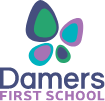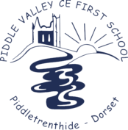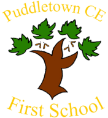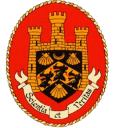
Literacy
Supporting Strong Literacy at the Purbeck School
Development of strong literacy is guided by information from the EEF:
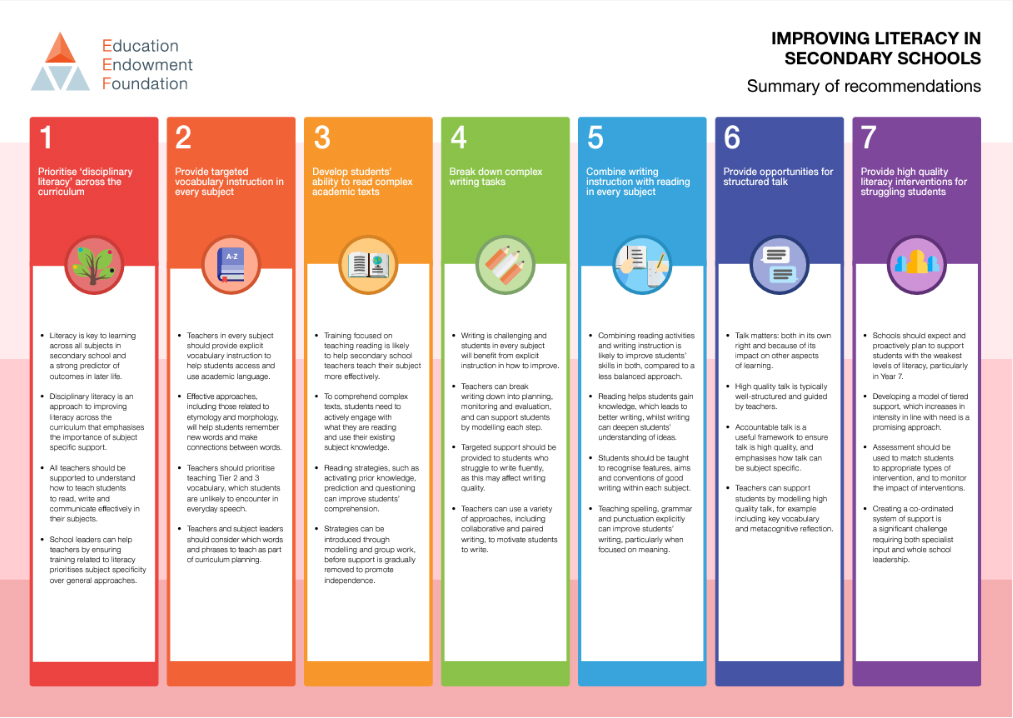
If you want to read about how individual departments are working to support literacy, then you can find more information: here
Reading:
We are committed to developing a passion for reading in our students and continue to take the following actions to support
- We promote regular reading and an increase in cultural capital through our whole school's daily tutor time reading programme;
- We promote the use of our school library through events, links to themed assembly weeks and through contact with parents;
- We utilise library appointments to support students in choosing books to take home;
- We utilise library induction lessons to support students in how to navigate resources;
- We heavily invest in our library stock and ensure that texts;
- We identify where students have gaps in their reading and use interventions to support students in addressing gaps;
- We monitor the effectiveness of our reading interventions through using external measurements of impact;
- We address barriers to reading by offering appropriate phonics support;
- We encourage reading at home through a tiered home learning policy designed to support readers of all abilities;
- We involve our 6th form students and use them to support readers at KS3;
The Purbeck School Library
Further information about the school library, including a link to the library catalogue may be found at https://www.purbeck.dorset.sch.uk/key-information/library
Tutor Time Reading Itinerary
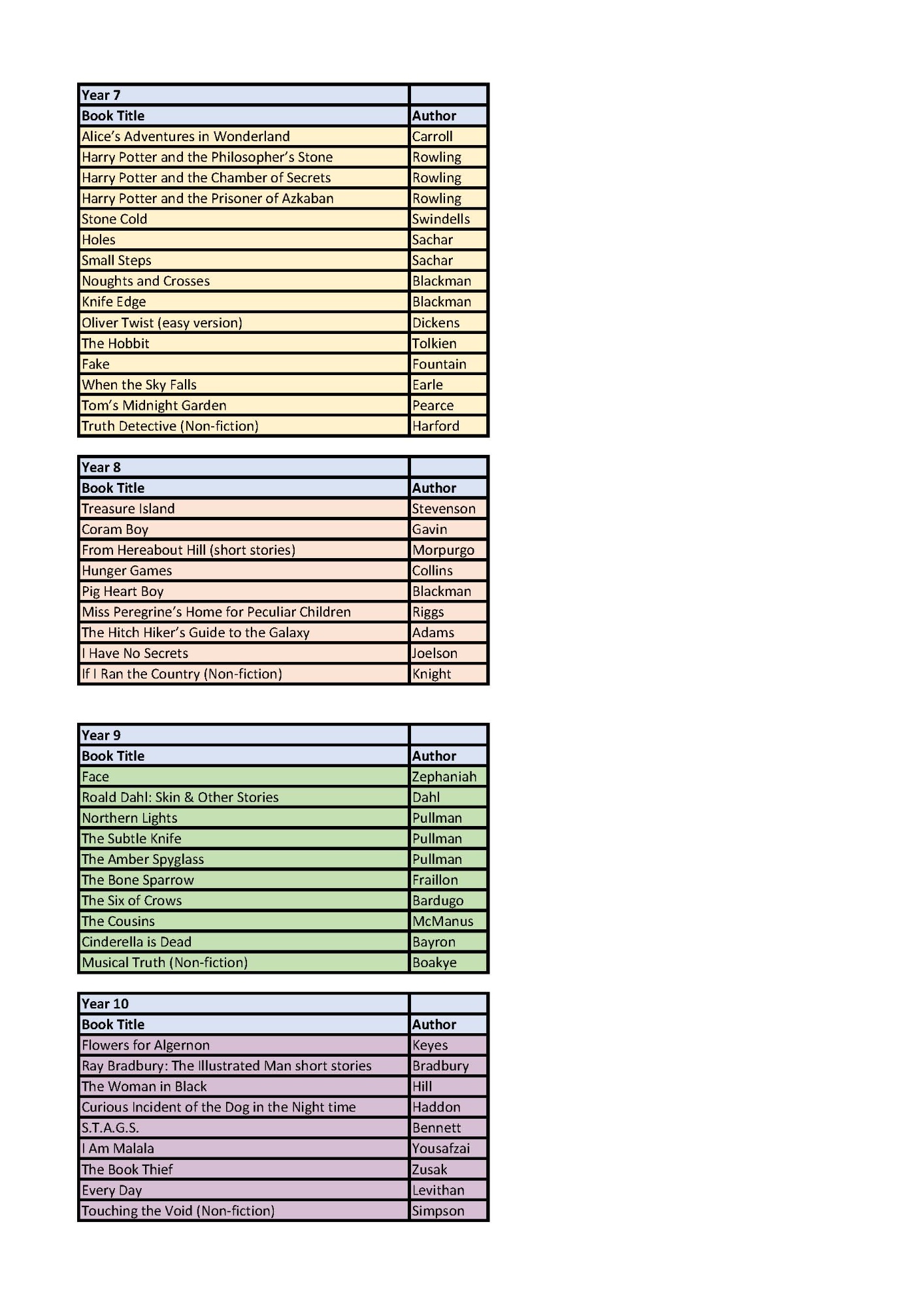
Strategy Overview:
Knowledge Organisers: In KS3, student spelling and understanding of subject specific terminology is supported through the use of knowledge organisers in home learning. Where students are identified, through school tracking systems, as having difficulty in obtaining desired scores in knowledge organiser quizzes, we provide after school support sessions to assist students with their revision.
Home Learning: In year 7, 8 and 9, students are expected to read for pleasure for 20 minutes or more each evening. This is signed by parents and checked by their English teachers.
Library lessons: All students in year 7 are given a full library induction at the start of the academic year. There is a library lesson once a cycle for all year seven students in the autumn term.
Reading in tutor times: All students in KS3 and KS4 are read to in afternoon tutor time, by their tutor. The tutor group select a novel from a reading canon of classic, popular and BAME fictions.
Personalised Literacy Pathway: The Aim High / DSEN departments utilises a ‘Personalised Literacy Pathway’ which covers a range of literacy interventions which are designed to improve students’ reading ages and decoding skills. Students participate in this pathway if they are identified as having low prior attainment, reading ages below their chronological age or may be off track in English lessons.
Excel in English: The English Department offers additional English lessons for students who we think will benefit from studying one less subject in KS3 in Year 9. Excel in English is taught by their classroom teacher and students review the core skills which are linked to their GCSE English Language exam.
English Studies: When students select their GCSE options, English studies may be offered as an alternative to one additional subject. By opting for English Studies, students are provided with 5 additional English lessons per cycle. Students learn and revise key content that is required for their English Language and English Literature GCSE.
Assessment Policies: Each department will identify what they are doing to promote effective literacy of students as part of subject assessment policies which will be checked through department work scrutiny.
Promotion of reading: The Library is an active part of school life and promotes reading throughout the year. This is enhanced by the tutor reading programme, book groups, and home learning.
Addressing staff literacy: Where issues with staff literacy are identified, such as use of the apostrophe, whole staff training and workshops are used to support staff with their own literacy needs.
Stuck for your next book? Click here for inspiration!
The following websites give great tips for different ages. Many of the titles are available in the school library, or your local library.
- https://www.theguardian.com/books/teen-books
- https://www.lovereading.co.uk
- https://www.whichbook.net
- https://www.childrensbooksequels.co.uk
- https://www.fantasticfiction.com
- https://carnegiegreenaway.org.uk/tag/2020
- https://www.booktrust.org.uk/books-and-reading
- https://www.englishandmedia.co.uk/blog/40-great-reads



